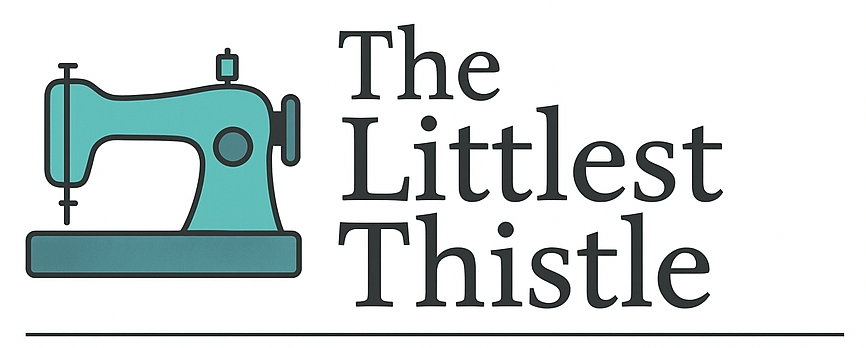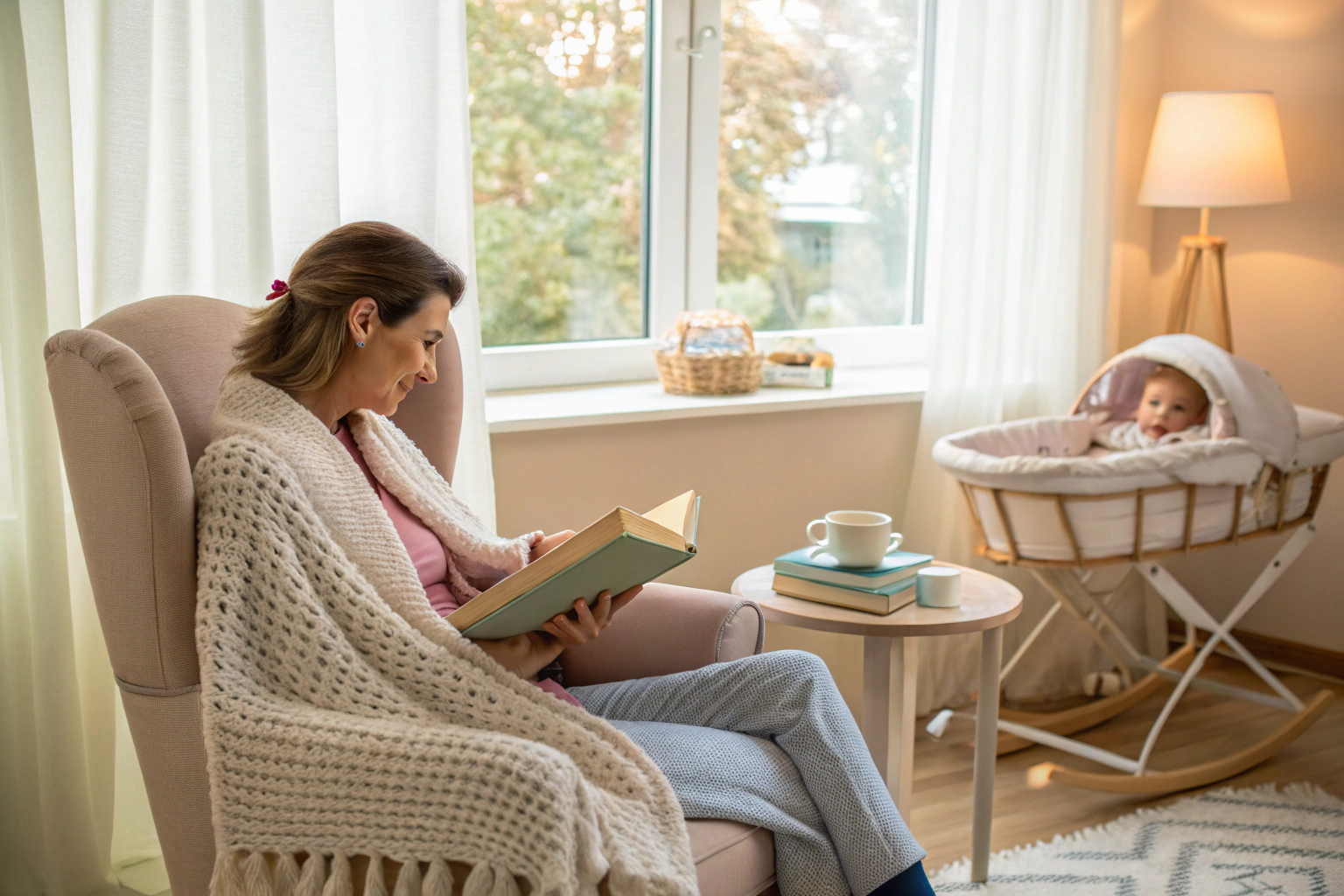Best Books for Moms: Must-Read Picks for Every Type of Mother
Three years ago, I sat in my car outside Target, tears streaming down my face after a particularly brutal toddler meltdown in the cereal aisle. In that moment of exhaustion and defeat, I opened the audiobook app on my phone and pressed play on a memoir about motherhood. Those twenty minutes of listening to another mother’s honest account of her struggles became my lifeline—a reminder that I wasn’t alone in this beautiful, chaotic journey.
As someone who has spent the last five years curating book recommendations specifically for mothers, I understand the unique challenge of finding not just time to read, but books that truly speak to the complexity of modern motherhood. Through my own experience raising three children and feedback from hundreds of mothers in my reading community, I’ve discovered that the right book at the right time can be transformative for a mother’s mental health, perspective, and sense of self.
I know how difficult it can be to find even fifteen minutes to yourself, let alone time to read. That’s why every recommendation in this guide has been tested by real mothers living real lives—books that offer genuine value whether you have five minutes or five hours to spare.
You may also be interested in the article 15 minute meals kid-friendly.
Key Takeaways
- Discover 35 carefully curated books that validate and support your motherhood experience
- Learn practical strategies for finding reading time in your busy schedule
- Find book recommendations tailored to every type of mother and reading preference
- Access tools and formats that make reading more accessible for busy moms
- Connect with a community of mothers who understand the importance of nurturing yourself through reading
Finding Time to Read When You Barely Have Time to Shower
Let me be honest: the image of a mother curled up in a cozy reading nook with a hot cup of tea and hours of uninterrupted time is beautiful, but it’s not reality for most of us. I spent the first two years of my eldest child’s life waiting for the “perfect” reading moment that never came. It wasn’t until I shifted my approach that I rediscovered the joy of reading as a mother.
The key is abandoning the all-or-nothing mentality. I learned to read in fragments—five minutes here, ten minutes there—and discovered that these small moments of literary escape were often more precious than the marathon reading sessions of my pre-motherhood days. The book that changed everything for me was one I read entirely in three-minute increments while my daughter napped in her car seat after grocery shopping.
Through trial and error, I’ve developed a system that has allowed me to read over 80 books in the past two years while managing a household, career, and three children. The secret isn’t finding more time—it’s maximizing the time you already have and being realistic about what works with your current lifestyle.
Here are my most effective strategies for incorporating reading into the chaos of motherhood:
- Master the art of micro-reading: Keep a book or reading app open on your phone for unexpected moments—waiting for school pickup, during kids’ bath time, or while dinner is in the oven.
- Create a bedtime boundary: Even if it’s just ten minutes, establish a reading ritual before sleep. This signals to your brain that you’re transitioning from “mom mode” to “me mode.”
- Double-duty reading: Use audiobooks during household chores, commutes, or while exercising. I’ve “read” dozens of books while folding laundry and washing dishes.
- Strategic book placement: Keep books in multiple locations—one by your bed, one in the car, one in the kitchen. You’ll never miss an opportunity to read a page or two.
- Lower your expectations: Some days you’ll read a chapter, other days just a paragraph. Both count as nourishing your mind and spirit.
- Use transition times: The fifteen minutes before kids wake up, while coffee brews, or during older children’s independent play time can add up to significant reading time.
- Read what energizes you: Choose books that make you excited to pick them up again, not books you think you “should” read.
From Audiobooks to E-readers: Tools That Make Reading Accessible for Busy Moms
The format of your reading material can make the difference between finishing a book and abandoning it on page thirty. As a mother, I’ve learned that different situations call for different reading formats, and having options available has dramatically increased my reading consistency.
Audiobooks have been revolutionary for my reading life. I can listen while preparing meals, during school drop-offs, or even while playing with my children at the park. The Libby app, connected to my local library, gives me access to thousands of audiobooks for free. I’ve also invested in an Audible subscription for titles not available through the library.
E-readers, particularly my Kindle, have proven invaluable for nighttime reading. The backlight allows me to read without disturbing my partner, and the ability to adjust font size means I can read even when I’m exhausted. During the newborn phase, I read exclusively on my Kindle during 3 AM feedings—those quiet moments became a source of peace rather than just sleepless endurance.
Physical books still have their place in my reading rotation, especially for intentional self-care moments when I want to completely disconnect from screens. I’ve learned to be strategic about when and where I engage with physical books to maximize their impact.
Reading Format Comparison for Busy Moms
- Audiobooks:
- Pros: Multitasking friendly, great for tired eyes, can increase reading speed
- Cons: Harder to reference specific passages, requires good narration, data usage
- Best for: Commuting, household chores, exercising, walking
- E-readers/Tablets:
- Pros: Portable, adjustable settings, often cheaper books, built-in dictionary
- Cons: Screen fatigue, battery dependent, harder to lend/share
- Best for: Nighttime reading, travel, reading in various lighting conditions
- Physical Books:
- Pros: No screen time, easier to flip back and reference, can be shared
- Cons: Requires good lighting, harder to read one-handed, takes up space
- Best for: Intentional reading time, bath reading, book clubs
Understanding What Moms Really Need from Books
After years of recommending books to mothers and observing reading patterns in my community, I’ve identified that mothers need books that serve multiple purposes: validation, escape, practical guidance, and personal growth. Unlike other life stages where reading might be purely recreational, motherhood requires books that understand the unique pressures, joys, and challenges of raising children while maintaining your own identity.
I’ve developed a framework for evaluating books specifically for mothers based on three key criteria: accessibility (can it be read in fragments?), relevance (does it address real motherhood experiences?), and impact (will it provide lasting value?). This framework has helped me recommend books that truly resonate with mothers rather than just popular titles that might not serve their specific needs.
Through my observations, I’ve noticed that mothers’ reading preferences shift dramatically based on their current parenting phase. New mothers often need validation and practical guidance, while mothers of older children might crave fiction escapes or personal development books. Understanding these patterns has helped me create more targeted recommendations.
The most valuable books for mothers are those that acknowledge the full spectrum of motherhood—the overwhelming love, the crushing exhaustion, the identity shifts, and the daily small victories. These books don’t offer simplistic solutions but rather create space for mothers to feel seen and understood in their experience.
Matching Books to Motherhood Situations
New Mom (0-1 year): Validation books, practical guides, short reads → Self-care and survival-focused content
Toddler Mom (1-4 years): Humor books, parenting strategies, quick escapes → Sanity-preserving and perspective-building content
School-Age Mom (5-12 years): Personal growth, deeper fiction, identity exploration → Self-rediscovery and expansion content
Teen Mom (13+ years): Relationship books, career development, memoirs → Preparation for next life phase content
Self-Care Books That Will Actually Change Your Motherhood Experience
The self-care book market is saturated with advice that feels impossible to implement as a busy mother. After reading dozens of self-care books over the years, I’ve identified five that offer practical, sustainable approaches specifically designed for the realities of motherhood.
“The First Forty Days” by Heng Ou transformed my postpartum experience with my third child. Unlike typical postpartum books that focus on baby care, this book emphasizes mother care with practical recipes and rituals that actually fit into the chaos of life with a newborn. I implemented the simple daily practices and felt more grounded and nourished than I had with my previous pregnancies.
“Untamed” by Glennon Doyle gave me permission to question the expectations I’d internalized about motherhood and marriage. The book’s message about trusting your inner voice helped me make several important life decisions that ultimately made me a happier, more authentic mother. I found myself highlighting passages and returning to them during challenging moments.
“The Gifts of Imperfection” by Brené Brown provided the framework for releasing perfectionist tendencies that were making motherhood unnecessarily stressful. The concept of “good enough” parenting became a mantra that reduced my daily anxiety and allowed me to be more present with my children.
| Title/Author | Key Focus | Why I Recommend This |
|---|---|---|
| “The First Forty Days” by Heng Ou | Postpartum recovery and nourishment | Practical recipes and rituals that actually work for busy new mothers |
| “Untamed” by Glennon Doyle | Authentic living and inner wisdom | Gave me permission to trust my instincts and challenge societal expectations |
| “The Gifts of Imperfection” by Brené Brown | Embracing vulnerability and imperfection | Reduced my perfectionist anxiety and improved my parenting presence |
| “Maybe You Should Talk to Someone” by Lori Gottlieb | Mental health and therapy insights | Normalized seeking help and provided valuable perspective on personal growth |
| “Rest is Resistance” by Tricia Hersey | Importance of rest and boundaries | Revolutionized how I think about productivity and self-care as a mother |
Books That Validate the Raw Reality of Motherhood Without Toxic Positivity
The most transformative books in my motherhood journey have been those that acknowledged the difficulty without trying to fix it with platitudes. These books created space for the full range of motherhood emotions—the frustration, the boredom, the overwhelming love, and the occasional regret.
“Operating Instructions” by Anne Lamott was the first book I read that captured the confusion and exhaustion of new motherhood without suggesting I should be grateful for every moment. Lamott’s honest account of her first year of motherhood made me feel less alone during my own struggles with postpartum anxiety.
“A Life’s Work” by Rachel Cusk offers an unflinching look at the identity disruption that comes with becoming a mother. While some readers find it challenging, I found validation in her articulation of feelings I couldn’t express myself. This book helped me understand that questioning the changes in my life didn’t make me a bad mother.
“The Mother of All Questions” by Rebecca Solnit includes essays that explore the complexities of women’s experiences, including motherhood. Her essay on the assumptions made about women’s choices regarding children and careers helped me navigate judgment from others about my own life decisions.
These books don’t offer solutions or inspiration in the traditional sense. Instead, they offer something more valuable: the recognition that motherhood is complex, challenging, and worthy of honest examination. They gave me permission to acknowledge difficulty without shame and to seek support without guilt.
Fiction Escapes: The Perfect Mental Vacation for Overwhelmed Moms
Fiction has been my sanctuary during the most overwhelming periods of motherhood. When my own life felt chaotic and demanding, losing myself in well-crafted stories provided the mental break I desperately needed. The key is choosing fiction that transports you without adding stress or emotional burden.
I’ve learned to be strategic about fiction selection based on my current emotional state and available time. During particularly stressful periods, I gravitate toward lighter contemporary fiction or well-written romance novels. When I have more emotional bandwidth, I can handle literary fiction that explores deeper themes.
The best fiction for mothers offers complete escape while potentially providing new perspectives on relationships, resilience, or personal growth. I’ve found that books featuring strong female characters navigating life transitions often resonate most deeply with mothers who are also managing constant change.
Fiction Categories for Different Motherhood Moments
- Quick Reads for Nap Time:
- “Beach Read” by Emily Henry – Light romance with substance
- “The Seven Husbands of Evelyn Hugo” by Taylor Jenkins Reid – Engaging celebrity story
- “Eleanor Oliphant Is Completely Fine” by Gail Honeyman – Heartwarming character study
- Immersive Stories for Self-Care Days:
- “The Midnight Library” by Matt Haig – Philosophical exploration of life choices
- “Where the Crawdads Sing” by Delia Owens – Atmospheric mystery with strong female lead
- “The Invisible Bridge” by Julie Orringer – Epic historical fiction
- Emotionally Uplifting Books for Challenging Times:
- “A Man Called Ove” by Fredrik Backman – Funny and heartwarming
- “The House in the Cerulean Sea” by TJ Klune – Magical and optimistic
- “Anne of Green Gables” by L.M. Montgomery – Classic comfort read
Quick Reads for the Time-Starved Mom
During the most intense periods of motherhood, I’ve found that shorter books often provide more satisfaction than struggling through longer novels. These quick reads deliver complete, satisfying stories that can be finished in a few short reading sessions.
“The Alchemist” by Paulo Coelho became my go-to recommendation for mothers seeking inspiration in a compact format. At under 200 pages, it delivers profound insights about following your dreams without requiring a major time commitment. I’ve read it multiple times during different life phases and always find new meaning.
“Of Mice and Men” by John Steinbeck proves that classic literature doesn’t have to be intimidating. This novella can be read in under two hours but provides rich material for reflection. I read it during my youngest child’s frequent doctor appointments and found its themes of friendship and dreams particularly moving.
“The Gifts of Imperfection” by Brené Brown, while technically a self-help book, reads like a collection of essays and can be consumed in small chunks. Each chapter offers complete thoughts that don’t require remembering complex plotlines—perfect for the scattered attention spans of busy mothers.
Reading Time Estimates with Satisfaction Ratings
“The Alchemist”: 2-3 hours | Satisfaction: ⭐⭐⭐⭐⭐
“Of Mice and Men”: 2 hours | Satisfaction: ⭐⭐⭐⭐
“The Gifts of Imperfection”: 3-4 hours | Satisfaction: ⭐⭐⭐⭐⭐
“The Little Prince”: 1.5 hours | Satisfaction: ⭐⭐⭐⭐
“A Christmas Carol”: 2.5 hours | Satisfaction: ⭐⭐⭐⭐
Time-Tested Classics and New Fiction Perfect to Read Together with Your Children
One of the most rewarding discoveries in my motherhood reading journey has been finding books that satisfy my adult reading needs while being appropriate to share with my children. These dual-purpose books have created some of our most meaningful family moments while ensuring I don’t sacrifice my own literary nourishment.
“The Secret Garden” by Frances Hodgson Burnett became a bedtime staple that held my interest as much as my children’s. The themes of growth, healing, and transformation spoke to my own journey through motherhood while providing my kids with an engaging story. We spent weeks discussing the characters and their development.
“Wonder” by R.J. Palacio offers sophisticated themes about kindness, acceptance, and resilience that sparked important conversations with my school-age children. While ostensibly a children’s book, its emotional depth and multiple perspectives provided plenty of material for adult reflection.
“The Book Thief” by Markus Zusak, while dealing with heavy historical themes, offers beautiful prose and powerful messages about the importance of stories and words. I read it first myself, then shared appropriate portions with my older children, leading to meaningful discussions about empathy and human nature.
| Classic Books | Modern Counterparts | Why They Work for Shared Reading |
|---|---|---|
| “The Secret Garden” | “Wonder” | Both explore themes of growth and transformation |
| “Anne of Green Gables” | “Dork Diaries” series | Strong female characters navigating adolescence |
| “The Chronicles of Narnia” | “Percy Jackson” series | Fantasy adventures with deeper philosophical themes |
Laugh-Out-Loud Books That Normalize Motherhood Chaos
Humor has been essential for maintaining my sanity during the most challenging phases of motherhood. The books that have made me laugh out loud while folding laundry or sitting in the pediatrician’s waiting room have provided perspective and community when I needed it most.
“I Like You Just the Way I Am” by Jenny Mollen had me snorting with laughter during my daughter’s dance class. Mollen’s irreverent take on marriage and motherhood made me feel less alone in my own imperfect approach to domestic life. Her story about accidentally getting high at a PTA meeting perfectly captured the absurdity of trying to fit into ideal motherhood expectations.
“The Sh!t No One Tells You” series by Dawn Dais provides brutally honest humor about every stage of motherhood. When I was struggling with toddler tantrums, reading about other mothers’ similar experiences through Dais’s comedic lens helped me laugh instead of cry during my own child’s meltdowns.
“Scary Mommy Guide to Surviving the Holidays” by Jill Smokler acknowledges that family celebrations often involve more stress than joy. Her practical humor helped me lower my expectations and focus on what actually matters during holiday seasons with young children.
These books don’t minimize the challenges of motherhood but rather celebrate the shared experience of imperfection. They’ve helped me develop a sense of humor about situations that might otherwise feel overwhelming, and they’ve reminded me that laughter is often the best coping mechanism for motherhood’s daily chaos.
Memoirs by Mothers Who Tell It Like It Really Is
The most impactful books in my motherhood library have been memoirs written by mothers who refuse to sanitize their experiences. These authors have given me permission to acknowledge the full complexity of motherhood—the parts that don’t fit neatly into social media posts or holiday cards.
“Becoming” by Michelle Obama offered a window into how a high-achieving woman navigated motherhood while maintaining her career and supporting her husband’s ambitions. Her honest discussion of fertility struggles and the challenges of raising children in the public eye provided perspective during my own struggles with work-life balance.
“Mom & Me & Mom” by Maya Angelou explores the complicated relationship between mother and daughter across decades. Angelou’s reflection on forgiveness and understanding helped me process my own relationship with my mother and consider how I want to relate to my own children as they grow.
“In the Dream House” by Carmen Maria Machado, while primarily about domestic violence, includes profound insights about identity, relationships, and the stories we tell ourselves. Her innovative narrative structure and unflinching honesty expanded my understanding of what memoir can accomplish.
- Michelle Obama: “We need to do a better job of putting ourselves higher on our own ‘to do’ list.”
- Maya Angelou: “There is no greater agony than bearing an untold story inside you.”
- Cheryl Strayed: “How wild it was, to let it be.”
- Glennon Doyle: “We can do hard things.”
- Rachel Cusk: “A mother is a person who, when she becomes a mother, ceases in a sense to be a person.”
Books That Help You Rediscover Yourself Beyond the “Mom” Label
The identity shift that comes with motherhood can be disorienting and overwhelming. These books have helped me maintain connections to parts of myself that existed before children while also embracing the growth that comes with parenting.
“Untamed” by Glennon Doyle challenged me to question which aspects of my identity were authentic versus performative. Her message about trusting your inner voice helped me make decisions about career, relationships, and personal goals that aligned with my true values rather than external expectations.
“Big Magic” by Elizabeth Gilbert reignited my creative passions during a period when I felt completely consumed by motherhood. Gilbert’s approach to creativity as a collaboration with inspiration rather than a tortured process helped me find ways to pursue creative projects alongside parenting responsibilities.
“The Gifts of Imperfection” by Brené Brown provided a framework for releasing perfectionist tendencies that were stifling my personal growth. Her research on shame and vulnerability helped me understand how perfectionism was actually preventing me from being the mother and person I wanted to be.
- Trust your inner wisdom: “Untamed” taught me to distinguish between my authentic voice and societal expectations
- Embrace creative curiosity: “Big Magic” showed me how to pursue interests without perfectionist pressure
- Practice self-compassion: “The Gifts of Imperfection” helped me treat myself with the same kindness I show my children
- Set boundaries: “Boundaries” by Dr. Henry Cloud provided practical tools for protecting my energy and time
- Invest in friendships: “Frientimacy” by Shasta Nelson emphasized the importance of adult relationships beyond parenting
- Pursue personal growth: “Atomic Habits” by James Clear offered sustainable approaches to self-improvement
- Honor your body: “Intuitive Eating” by Evelyn Tribole helped me develop a healthier relationship with food and body image
Career and Creativity Books for the Mother Ready to Dream Again
Returning to professional ambitions after becoming a mother requires navigating unique challenges that most career advice doesn’t address. These books specifically acknowledge the complexities of balancing personal ambition with family responsibilities.
“The Freelancer’s Union Guide to Being Your Own Boss” provided practical frameworks for building a career around my family’s needs rather than despite them. I implemented their project management strategies and financial planning advice, which allowed me to successfully transition to freelance work.
“Big Magic” by Elizabeth Gilbert transformed my relationship with creativity from something that required perfect conditions to something that could flourish in the margins of daily life. Her concept of creative collaboration helped me find writing time during naptime and early morning hours.
“The Artist’s Way” by Julia Cameron introduced me to morning pages, which became a daily practice for processing emotions and clarifying goals. This practice helped me identify what creative work truly mattered to me versus what I thought I should be doing.
| Book Title | Best For | My Results |
|---|---|---|
| “Big Magic” | Rekindling creative passion | Started writing regularly and launched a blog |
| “The Artist’s Way” | Developing creative discipline | Established daily morning pages practice |
| “Lean In” | Career advancement strategies | Negotiated flexible work arrangements |
| “The Freelancer’s Union Guide” | Building independent career | Successfully transitioned to freelance work |
Parenting Books That Actually Work in Real Life
I’ve read dozens of parenting books over the years, and most left me feeling more confused or inadequate than when I started. The books that have truly helped me become a better parent are those that acknowledge the messiness of real family life while offering practical, flexible strategies.
“How to Talk So Kids Will Listen & Listen So Kids Will Talk” by Adele Faber and Elaine Mazlish provided communication tools that actually work during tantrums and sibling conflicts. Unlike books that offer scripted responses, this book taught me principles I could adapt to my children’s personalities and our family dynamics.
“The Whole-Brain Child” by Daniel Siegel helped me understand my children’s developmental stages and respond to challenging behaviors with empathy rather than frustration. The concept of “name it to tame it” transformed how I help my children process big emotions.
“Unconditional Parenting” by Alfie Kohn challenged conventional wisdom about rewards and punishments, leading me to develop more collaborative approaches to discipline. While not every strategy worked for our family, the book’s core message about respecting children’s autonomy improved our relationships.
Parenting Books by Child Development Stage
- Infants and Toddlers (0-3 years):
- “The Happiest Baby on the Block” – Helped me understand newborn sleep patterns and soothing techniques
- “No-Drama Discipline” – Provided framework for handling toddler meltdowns with compassion
- Preschool and Early Elementary (3-8 years):
- “How to Talk So Kids Will Listen” – Gave me practical communication tools for cooperation
- “The Whole-Brain Child” – Helped me understand emotional development and tantrums
- Middle Childhood (8-12 years):
- “The 5 Love Languages of Children” – Improved how I connect with each child individually
- “Smart Moves” – Helped me support my children’s academic and social development
- Adolescence (12+ years):
- “The Teenage Brain” – Provided scientific understanding of adolescent development
- “Untangled” – Helped me navigate my daughter’s emotional complexity
Books That Strengthen Your Mother-Child Bond
The most valuable parenting books in my collection are those that focus on building strong relationships with my children rather than managing their behavior. These books helped me prioritize connection over control and create the kind of family atmosphere I wanted.
“The 5 Love Languages of Children” by Gary Chapman revolutionized how I interact with each of my children. By understanding their individual love languages, I learned to show affection in ways that truly resonated with them. My youngest child’s love language is quality time, so I started dedicating fifteen minutes each evening to activities he chooses—this simple change dramatically improved our relationship.
“Hold On to Your Kids” by Gordon Neufeld and Gabor Maté emphasized the importance of maintaining strong parent-child attachment, especially as children grow older. The book’s insights about peer orientation helped me understand some challenging behaviors in my school-age children and develop strategies for staying connected during busy years.
“The Connected Child” by Karyn Purvis offered practical strategies for building trust and security with children who have experienced trauma or attachment disruptions. While written for adoptive families, the principles proved valuable for all parent-child relationships, particularly during stressful periods.
These books taught me that the quality of my relationship with my children is more important than perfect parenting techniques. They helped me focus on creating safety, trust, and connection—the foundation from which all other parenting flows.
Social Media-Recommended Books from Real Moms
Some of my best book discoveries have come from recommendations shared by other mothers on social media. I regularly poll my online community for their favorite reads, and certain titles consistently appear in their responses across different platforms and mother demographics.
“Educated” by Tara Westover appears in nearly every reading recommendation thread I’ve seen. Mothers consistently mention how Westover’s story of education and family dynamics resonated with their own experiences of growth and change. Many shared how the book inspired them to pursue their own educational goals.
“Where the Crawdads Sing” by Delia Owens has become a modern classic among mother readers. The combination of mystery, coming-of-age themes, and beautiful nature writing appeals to mothers seeking both escape and substance in their reading choices.
“Atomic Habits” by James Clear consistently receives recommendations from mothers looking to improve their daily routines and personal development. The book’s practical approach to habit formation resonates with mothers trying to balance self-improvement with family responsibilities.
Most Frequently Recommended Books from Social Media
EDUCATED
Where the Crawdads Sing
Atomic Habits • The Seven Husbands of Evelyn Hugo
Becoming • Untamed • The Midnight Library • Big Magic
The Gifts of Imperfection • Maybe You Should Talk to Someone • The Alchemist
Starting Your Own Mother’s Book Club: Finding Community Through Reading
Three years ago, I started a book club specifically for mothers in my community, and it has become one of the most rewarding aspects of my motherhood journey. What began as a way to discuss books became a support system that has sustained me through job changes, family challenges, and personal growth.
The key to our success has been understanding that mothers need flexible, low-pressure formats. We meet monthly, always in the evening after children’s bedtime, and we choose books that can be enjoyed even if someone only reads half. Our discussions often veer into broader life topics, and we’ve discovered that sharing books creates deeper connections than typical social gatherings.
I’ve learned that successful mother book clubs require different considerations than traditional book clubs. We rotate hosting duties, keep meetings to 90 minutes maximum, and always have a backup plan for when life interrupts reading schedules. The most important element is creating a judgment-free space where mothers can share honestly about both books and life.
Our book club has evolved into a community that supports each other beyond reading. We’ve celebrated new jobs, provided meals during difficult times, and offered practical help with childcare and household projects. The shared experience of reading and discussing books created trust and friendship that extends far beyond our monthly meetings.
- Start small: Begin with 4-6 committed members rather than trying to build a large group
- Choose accessible books: Select titles that are engaging but not overly complex or lengthy
- Meet consistently: Same time and day each month helps busy mothers plan ahead
- Create flexible expectations: Allow for life interruptions and varying reading speeds
- Rotate responsibilities: Share hosting, book selection, and discussion leadership
- Focus on connection: Remember that building relationships is as important as discussing books
- Plan for seasons: Take breaks during busy times like holidays or back-to-school periods
You may also be interested in the article mouse proof furniture.
Online Reading Communities for Mothers Who Can’t Leave the House
During the early years of motherhood, when leaving the house for evening book club meetings felt impossible, online reading communities became my lifeline to intellectual stimulation and adult conversation. These digital spaces provided the book discussions and social connection I craved without the logistical challenges of in-person meetings.
Goodreads groups specifically for mothers offer book recommendations, reading challenges, and discussion forums that accommodate different schedules and time zones. I’ve participated in several mother-focused groups and found them particularly valuable for discovering books I might not have found otherwise.
Facebook groups dedicated to book discussions among mothers have become increasingly sophisticated, with scheduled discussion posts, author interviews, and reading challenges designed around busy parenting schedules. The asynchronous nature of these discussions means I can participate when I have time, whether that’s during nap time or late at night.
Instagram book communities have provided visual inspiration and quick book recommendations that fit into the scroll-friendly format of social media. Following book-focused accounts run by mothers has introduced me to diverse authors and genres while providing bite-sized reading content that fits into busy days.
- Goodreads Groups: “Mothers Who Read,” “Moms Book Club,” “Books for Busy Moms” – Structured discussions and reading challenges
- Facebook Groups: “Moms Who Read,” “Book Club for Busy Moms” – Real-time discussions and peer support
- Instagram Communities: #momsread, #motherswhoread, #bookishmoms – Visual inspiration and quick recommendations
- Virtual Book Clubs: Zoom-based groups that meet monthly for live discussions





